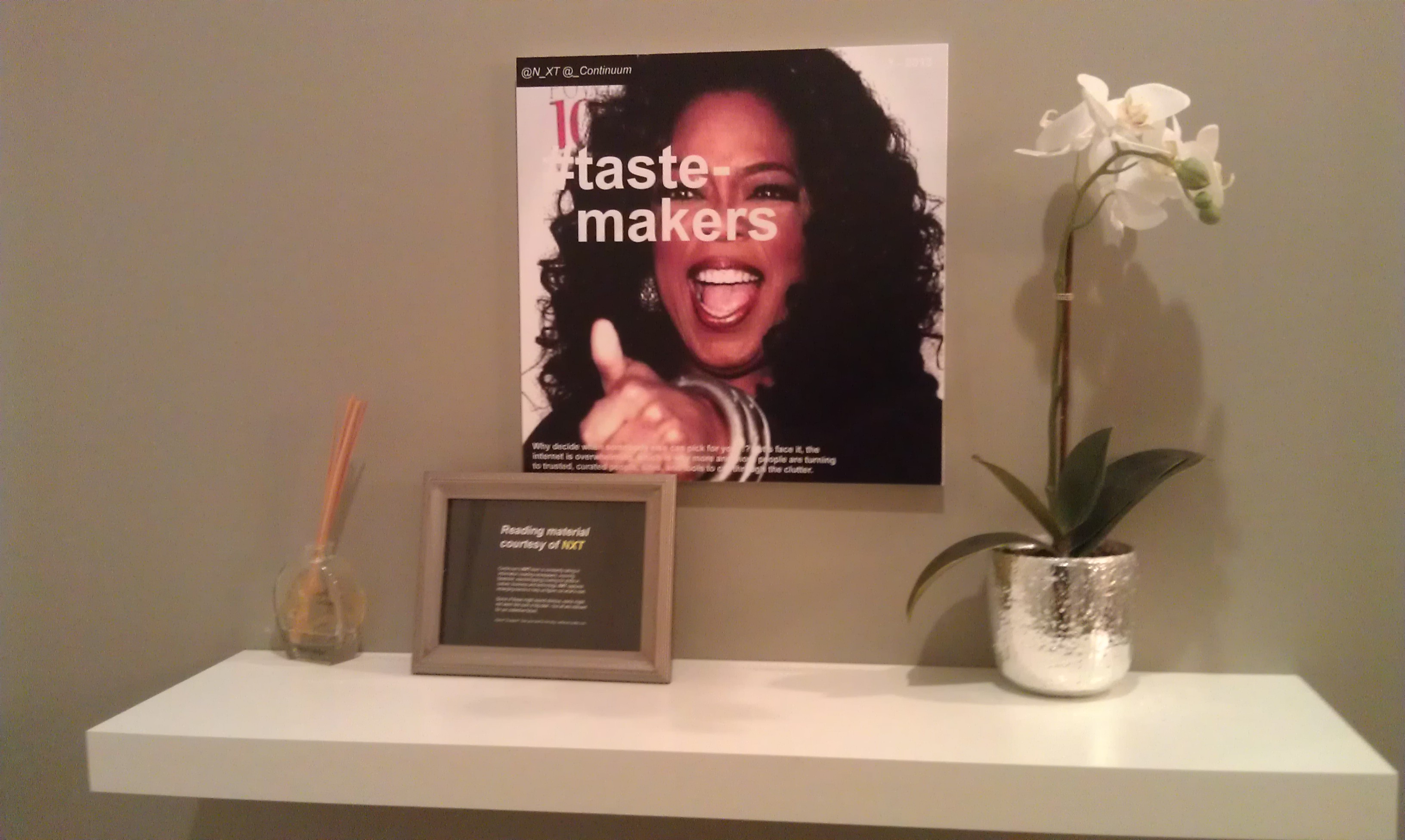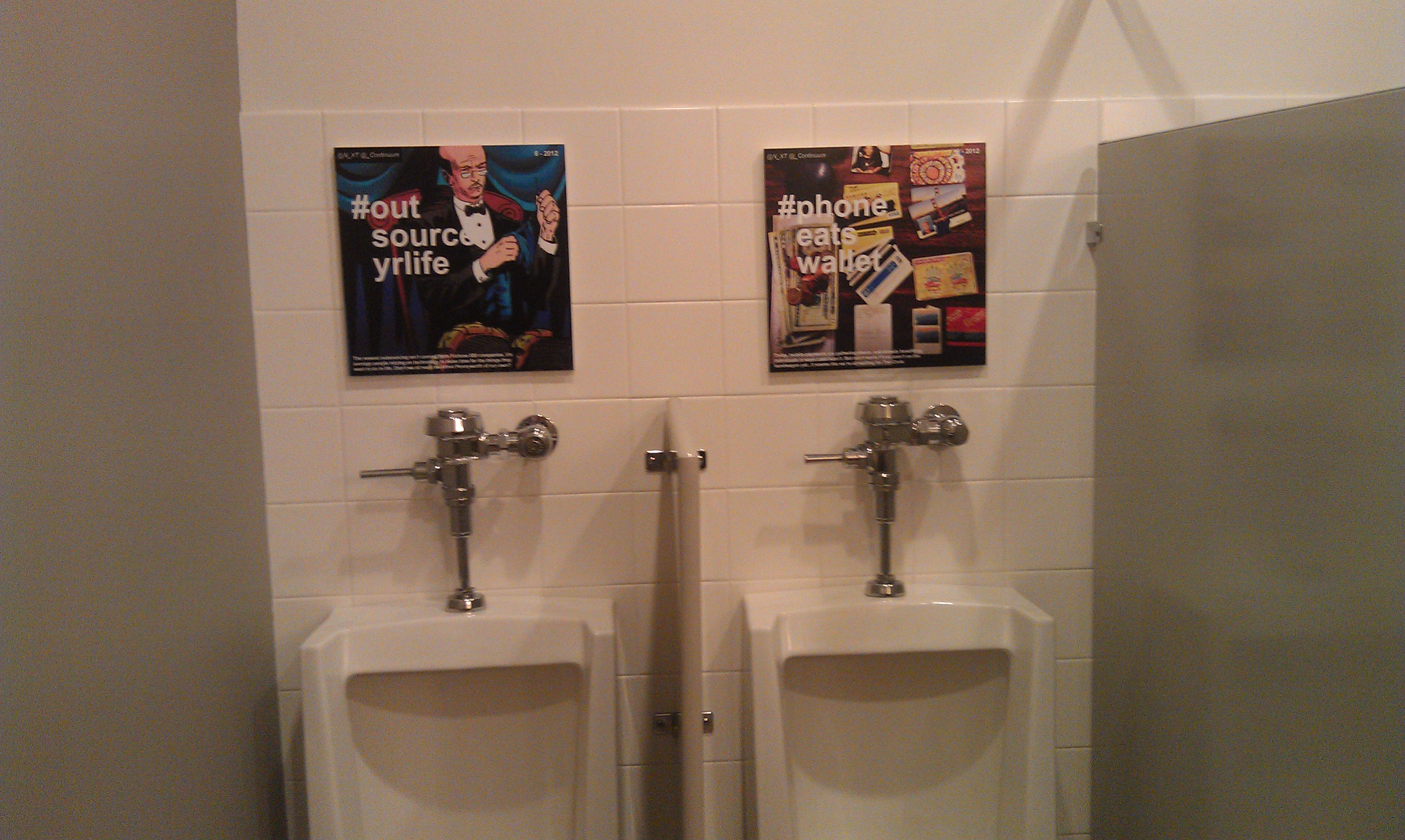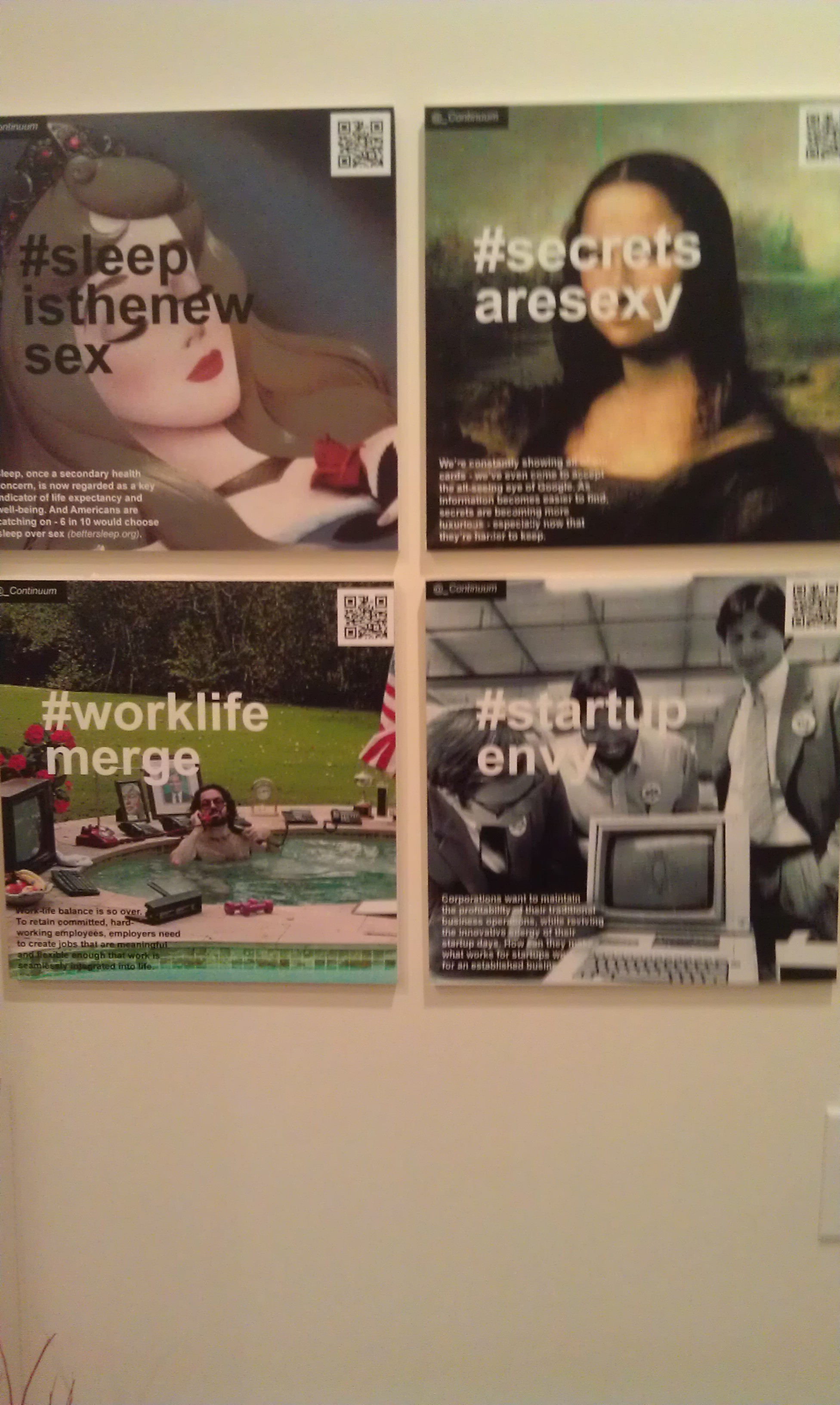Innovation has really gone to the toilet
Monday, January 27th, 2014I just completed a story on Continuum, a Boston design shop perhaps best known for the Swiffer and Reebok’s Pump. My piece looked at the creative process that goes into giving a twist to the mundane. One thing that didn’t make it into the piece: how the lowly toilet can foster innovation.
These photos I took show Continuum’s distribution medium for the company’s research arm, otherwise known as the Men’s Room.Oprah greets you as you walk in. Welcome to the creative zone, superstar!



Look for the piece in February in The Boston Globe Sunday Magazine.